CBSE Class 10 English Main Course Book Unit 4 Environment Chapter 2 Heroes of the Environment
Textual Exercises
Question 1.
Read the following Newspaper story :
Answer:
Sherpa to clean Mount Everest
Question 2.
On the basis of your reading of the news story, complete the following table after a group discussion.
| Adverse environmental effects of tourism and adventure sports. |
(a) ……………………………………………… (b) ……………………………………………… (c) ……………………………………………… (d) ……………………………………………… |
| Ways to prevent it |
(e) ……………………………………………… (f) ……………………………………………… (g) ……………………………………………… (h) ……………………………………………… |
Answer:
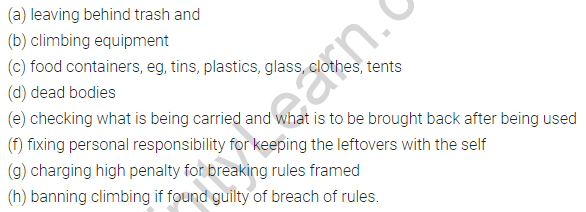
Question 3.
Now imagine you are in charge of a Mountaineering Expedition to Mount Everest. You have to address the first time climbers. Write the instructions that you would give to the climbers on keeping the track clean besides giving instructions on safety measures. Instruct how they can contribute in preventing the Everest from becoming, “The highest junkyard in the world”.
Answer:
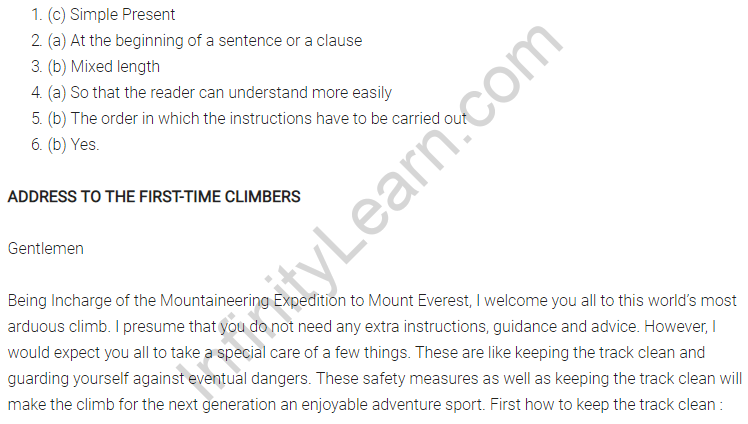
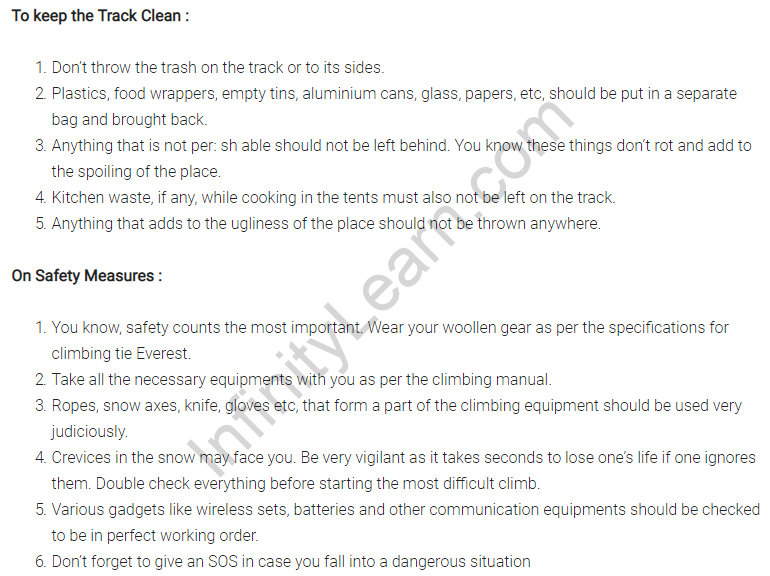

Question 4.
How to design a Poster ?
Design a poster for promoting cleanliness in the surroundings of your colony.
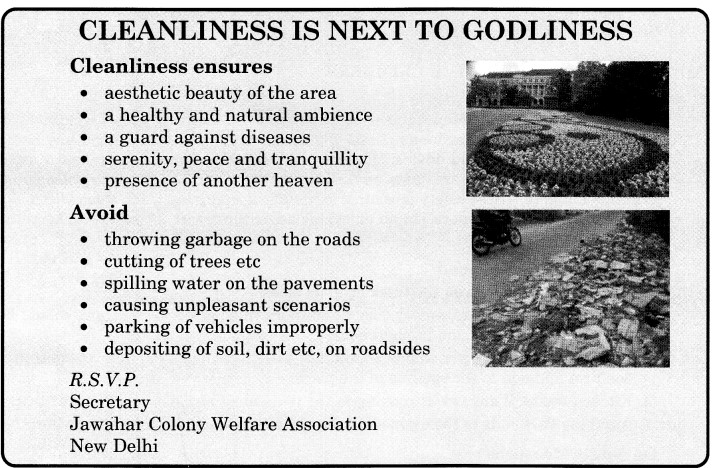
On the basis of this, design a poster urging mountaineers to preserve the pristine glory of the mountainsides. Work in groups of 4-5.
Answer:
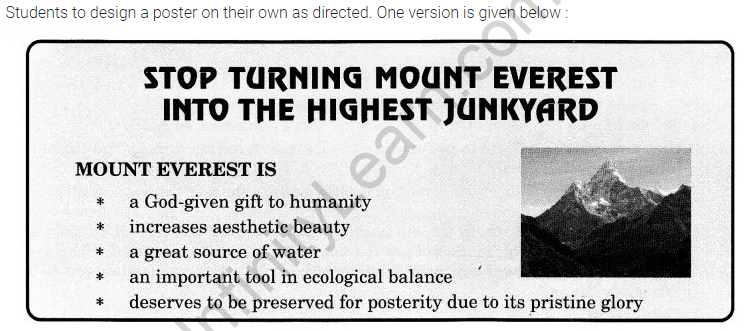
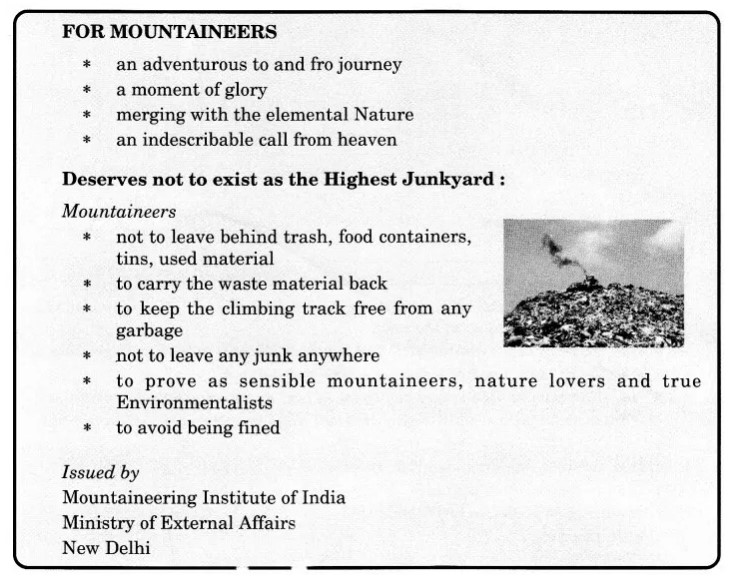
Question 5.
Wangari Maathai started the green Belt Movement and also fought for equal rights for women in Africa. She is the first African woman to win the Nobel Peace Prize. Read the excerpts from her interview with NHK Radio (Japan).
Answer:
![]()
Question 6.
Based on your reading of Wangari Maathai’s interview answer the following questions :
- Complete the tree of environment :

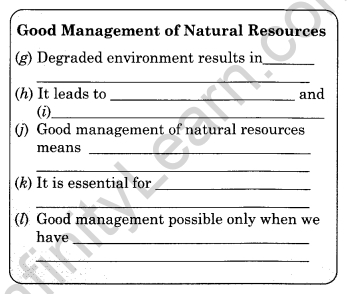
- How does Wangari Maathai explain the essential components of development ? Label and explain the analogy of the stool.
- What changes in the environment had Wangari Maathai noticed after growing up ?
- What is the importance of indigenous flora and fauna ?
- How did the campaign to save environment lead to the empowerment of women ?
- What transformation did Wangari Maathai see in people and the environment ?
Answer:
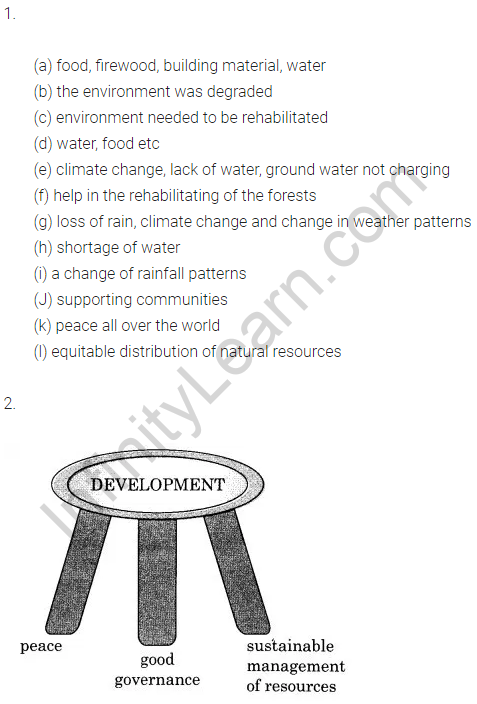
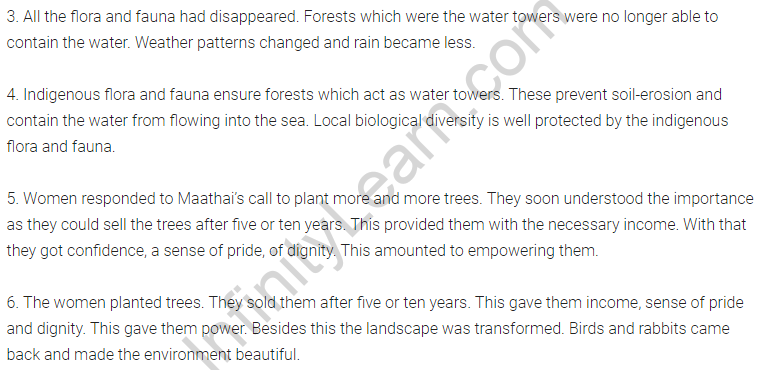
Question 7.
Match the ‘environment words’ with their meanings.
| Words | Meanings |
| (a) ecology | (i) A person who advocates preservation and careful management of natural resources. |
| (b) habitat | (ii) The variety and variability among living organisms and the ecological complexes in which they occur. |
| (c) herpetologist | (iii) The relationship of living things to one another and their environment, or the study of such relationships. |
| (d) extinct | (iv) Tropical evergreen trees or shrubs forming dense thickets along tidal shores. |
| (e) aquifer | (v) A place where a population lives and its surroundings, both living and non-living. |
| (f) naturalist | (vi) A zoologist who studies reptiles and amphibians. |
| (g) biodiversity | (vii) Having no living representative. |
| (h) mangrove | (viii) An underground geological formation, containing water. |
| (i) conservationist | (ix) A person who studies plants and animals, especially outdoors. |
Answer:

Question 8.
Identify an area in India that needs efforts on a war footing to conserve the bio system. On the model of Wangari Maathai’s efforts, prepare in groups a power point presentation covering the environmental problem, causes, effects and solutions. Each student in the group should present a part of the presentation.
Answer:
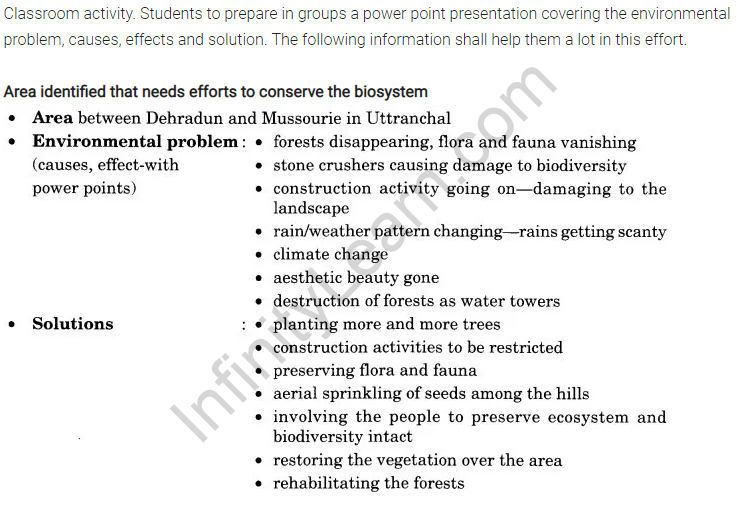
Question 9.
After reading the interview ofWangari Maathai, you are inspired and motivated to do a summer training under her at one of the Research Stations. Write an email to Wangari Maathai. In your mail describe Wangari’s influence on you and your desire to work under her and why you should be given a chance to work under her.
Answer:
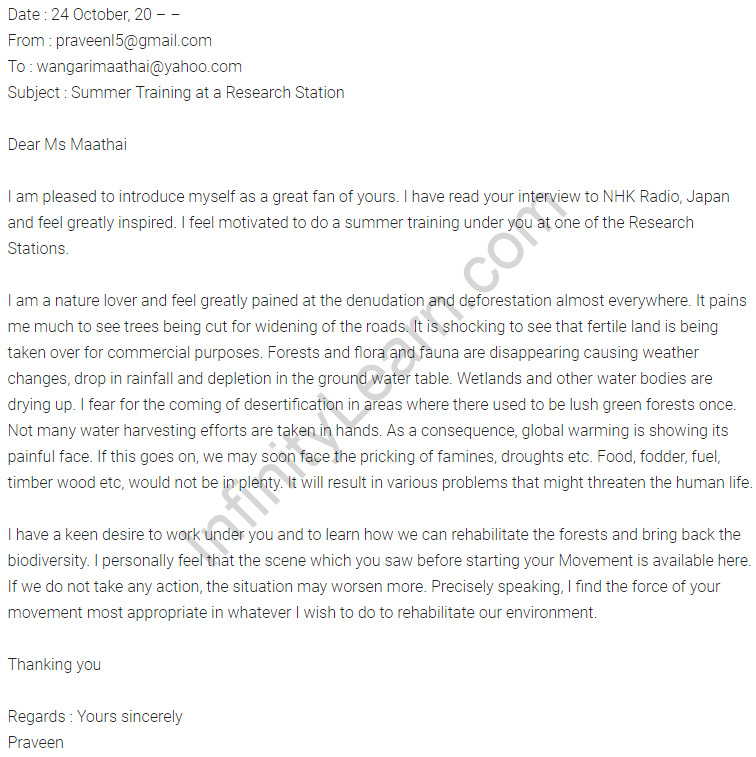
We hope the NCERT Solutions for Class 10 English Main Course Book Unit 4 Environment Chapter 2 Heroes of the Environment help you. If you have any query regarding CBSE Class 10 English Main Course Book Unit 4 Environment Chapter 2 Heroes of the Environment, drop a comment below and we will get back to you at the earliest.





